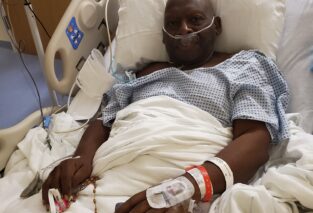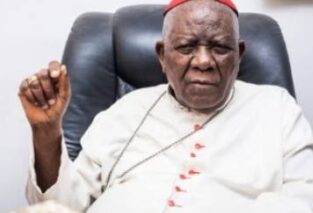My friend, Andy – the one who always beams a broad smile whenever anyone calls him “Andy Young” – and I were sat in one of those countless off-licence bars in downtown Akwa the other day, toasting the evening, each with a sweaty bottle of “jobajo bien tapé”, as the saying goes among connoisseurs of good beer in the city of Douala.
Our talk was drifting, as always, from one topic to another when Andy suddenly said:
“Martin, my man, Nigerians are a people with funny ideas, believe me”.
“What have they come up with this time?” I asked, affectionately fondling my bottle of “jobajo” and wondering to myself: “How on earth can anyone survive without you, “Mr. Jobajo”?
“Can you believe that some people over there are suggesting that corruption could be eliminated from the police force if police uniforms were sewn without pockets?”
“What! Police uniforms without pockets! And how would that eliminate corruption, for Christ’s sake?” I asked, really perplexed.
“Well, the idea is that if uniforms don’t have pockets, then their wearers would find it difficult to take a bribe for they won’t have where to put the money”, said Andy, a triumphant smile dancing at the corner of his lips.
“That is the most idiotic thing I have ever heard. Come-on, man, can’t the men slip the money into their socks? Or the women into their you-know-what?”
“Nigerians seem to have thought about that possibility as well. The men’s trousers would be sewn like those things babies wear that cover them from toe to neck and the women’s uniforms would have turtle-necks so that slipping a bribe into their “you-know-what” would not be so easy at all”, he said, beaming a broad smile from ear to ear.
“I hope such dumb ideas never cross the border”, I said.
“But don’t be surprised if some people here too might applaud such an idea”, Andy said, nodding his bespectacled face up and down like a lizard on a warm rock.
“Who, for example?” inquired your humble servant.
“What of taxi-drivers? Why don’t you just walk across the street this very minute and talk to those two over there and hear what they would say. I’m sure they would loudly endorse such a view wholeheartedly.”
“And just why would they?” I asked, truly intrigued.
“Don’t tell me you aren’t aware of the constant bickering between taxi-drivers and the police, with the former accusing the latter of always asking for and accepting a thousand francs for imaginable crimes. And, by the way,” he continued, “since Cameroon has recently been given, on two successive occasions, the unenviable title of the ‘most corrupt country in the world,’ depriving policemen and women of their pockets could be one way of sending a clear message to civilised humanity that we are serious about combating this endemic disease of corruption,” Andy concluded with a chuckle.
“If we were to deprive our policemen and women of their uniform pockets, what about our customs’ officers, politicians, businessmen and women who ask for and give bribes left and right?” I asked.
“I don’t know,” Andy said, sipping his “jobajo” with much joy.
“You can see then that the idea of depriving members of so noble a profession as the police force alone of their pockets, doesn’t do us any good. The best thing may be to deprive the whole country of pockets,” I concluded.
“That’s a good one, Martin. Deprive the whole country of pockets, eh? Yes, that’s a good one, my man, that’s a really a terrific one,” Andy roared with laughter, his alcohol-soaked breath hitting me on the face like a slap. Nothing beats a real bottle of cool “jobajo” in a cool evening in Akwa – Douala, whether the police keep their pockets or lose them.


